Ecosystems
-
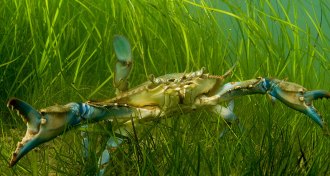 Ecosystems
EcosystemsPollution regulations help Chesapeake Bay seagrass rebound
Regulations that have reduced nitrogen runoff into the Chesapeake Bay are driving the recovery of underwater vegetation.
-
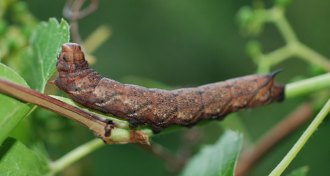 Animals
AnimalsThis scratchy hiss is the closest thing yet to caterpillar vocalization
A new way that caterpillars make noise may involve (tiny) teakettle‒style turbulence.
By Susan Milius -
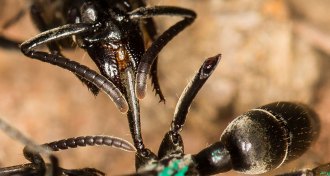 Animals
AnimalsAnts practice combat triage and nurse their injured
Termite-hunting ants have their own version of combat medicine for injured nest mates.
By Susan Milius -
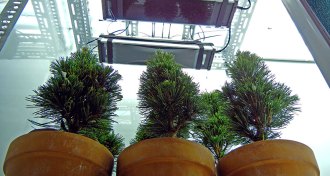 Plants
PlantsAncient ozone holes may have sterilized forests 252 million years ago
Swaths of barren forest may have led to Earth’s greatest mass extinction.
-
 Ecosystems
EcosystemsHumans are overloading the world’s freshwater bodies with phosphorus
Human activities are driving phosphorus levels in the world’s lakes and other freshwater bodies to a critical point.
-
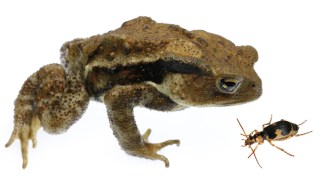 Animals
AnimalsIt’s a bad idea for a toad to swallow a bombardier beetle
Toads are tough. But there are some insects even they shouldn’t swallow.
By Susan Milius -
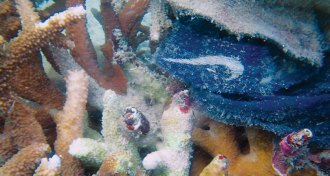 Environment
EnvironmentPlastic pollution increases risk of devastating disease in corals
Researchers estimate about 11 billion pieces of plastic are polluting Asia-Pacific corals, raising the risk of disease at scores of reefs.
By Dan Garisto -
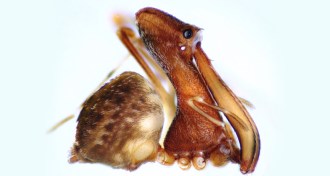 Animals
Animals18 new species of pelican spiders discovered
A researcher used old and new specimens to discover 18 species of pelican spiders from Madagascar.
By Dan Garisto -
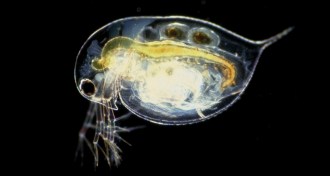 Climate
ClimateRising CO2 in lakes could keep water fleas from raising their spiky defenses
Rising CO2 in freshwaters may change how predators and prey interact in lakes.
-
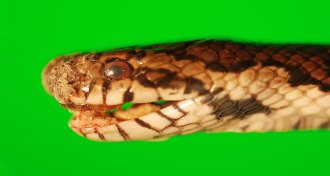 Life
LifeA deadly fungus is infecting snake species seemingly at random
A fungal disease doesn’t appear to discriminate among snake species, suggesting many of the reptiles may be at risk.
-
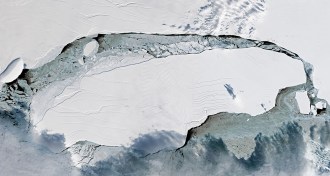 Climate
ClimateThe Larsen C ice shelf break has sparked groundbreaking research
The hubbub over the iceberg that broke off Larsen C may have died down, but scientists are just getting warmed up to study the aftermath.
-
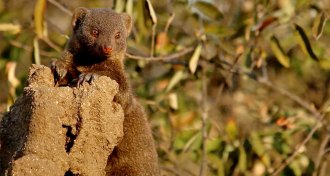 Animals
AnimalsOnce settled, immigrants play important guard roles in mongoose packs
Dwarf mongoose packs ultimately benefit from taking in immigrants, but there’s an assimilation period.